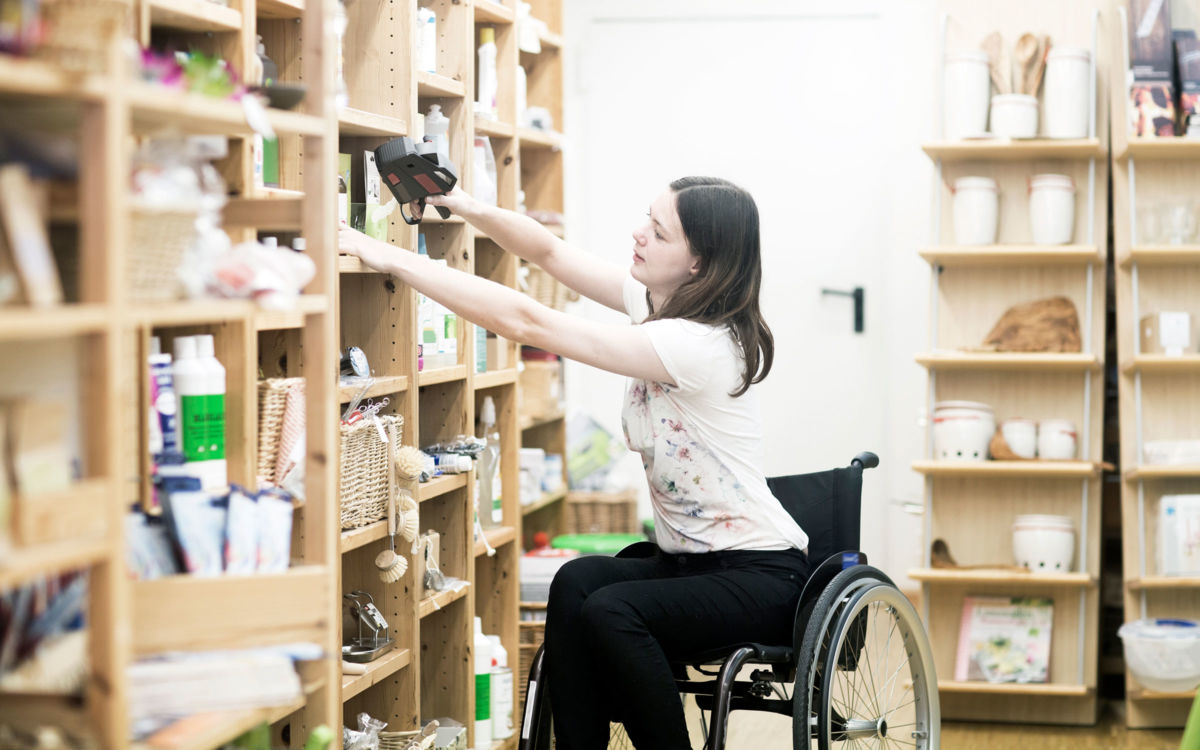Many members of the general public are unaware that it’s legal to pay disabled people subminimum wage. Indeed, a loophole in the Fair Labor Standards Act enables employers to offer people pennies on the dollar just because they’re disabled.
Thanks to the Transformation to Competitive Employment Act, introduced in the House by Rep. Bobby Scott (D-IA) and the Senate by Bob Casey (D-PA), that’s about to change. This legislation would eliminate this exception in the law, requiring fair pay for disabled people — an estimated 420,000 of whom are being underpaid on the job.
This legal shortcut to unfair pay originated at the turn of the 20th century, when service organizations and the disability community began promoting sheltered workshops to offer disabled people basic job training and employment. People could get jobs performing tasks like tuning pianos, caning chairs and engaging in basic manufacturing assembly.
At their outset, these offerings seemed to be a positive development — a change from being locked up at home or in institutions. But they didn’t employ disabled people side by side with nondisabled people in the regular workforce. As the name implies, disabled people were “sheltered” in purpose-built, segregated facilities.
When Congress passed the FLSA, advocates ensured that a section allowed sheltered workshops to get permission to underpay workers. They could apply for 14(c) certificates, named for the section of the law that allowed them to do so — and by law, they could pay workers on the basis of their productivity in comparison to nondisabled workers. If it took someone twice as long to assemble a widget, for example, they could be paid half as much.
Over the course of the 20th century, opposition to sheltered workshops began to grow in the disability community and among those working in solidarity with them. Disabled people argued that they should get fair pay and work in the general community, not in segregated environments.
This is known as competitive integrated employment, and it acknowledges that disabled people can and should be able to work in the general community, even if some individuals need extra job training or assistance.
As a result, service organizations slowly began shuttering sheltered workshops — in part due to state pressures to close them — and they often refused to fund new enrollees. Those same groups began working on placing disabled people out in the community so they could lead more fulfilling lives.
There’s been some resistance to this effort, especially among older parents of adult disabled children. They fear that the change for people who’ve been in sheltered workshops their whole lives is too stressful, or that their children will be exposed to harassment or abuse.
Evidence from programs making the change, however, suggests that they may not have as much to worry about as they think they do; many people are settling into new jobs very well, and they find them incredibly rewarding. Talking to people who have transitioned out of sheltered workshops is a powerful illustration of how valuable autonomy can be.
Now, Congress is catching up with this bill, which would get rid of 14(c) certificates. The legislation would also provide funding supports for this transition, ensuring that disabled people have access to the services they need to thrive. In the process, it will also ensure that disabled people are protected by other provisions of the FLSA — including measures designed to protect people from abuse, harassment and unfair treatment on the job.
Interested in supporting fair pay for disabled people? Call your lawmakers, and ask them to sign on to, and support, these bills. It’s the 21st century. Everyone deserves equal pay for equal work.
Join us in defending the truth before it’s too late
The future of independent journalism is uncertain, and the consequences of losing it are too grave to ignore. To ensure Truthout remains safe, strong, and free, we need to raise $43,000 in the next 6 days. Every dollar raised goes directly toward the costs of producing news you can trust.
Please give what you can — because by supporting us with a tax-deductible donation, you’re not just preserving a source of news, you’re helping to safeguard what’s left of our democracy.
